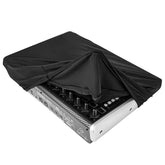Piano Practice Excellence: A Systematic Weekly Plan for Skillful Mastery
by
linzz
29 Jan 2024
About Piano Practice: If you only practice the piano for two days in a week, and each practice session is not more than 30 minutes, please don't tell others that you have been learning the piano for a year; in reality, you've only studied for 52 hours. The prerequisite for muscle memory is a single repeated action for over 60 minutes, and it can retain in memory for 72 hours. In other words, if you practice a movement for an hour, you won't forget it within three days, but on the fourth day, if you don't practice, you'll reset.
So, the weekly piano practice schedule below, from Monday to Saturday, can definitely help you systematically review and practice.

Day 1:
On the day after the teacher finishes the lesson, you must not avoid playing the piano. Quickly go through the issues pointed out by the teacher in the previous lesson; this helps reinforce memory. If you wait until the next day to play, you may have a vague memory of yesterday's discussed problems. Therefore, the focus of practice on this day should be on improving the shortcomings of the previous week, accounting for at least fifty percent of practice time, or practicing until completely correct.
Day 2:
Review whether the issues from the previous day's practice have been completely addressed and consider reducing the amount of review if the conditions allow. However, the prerequisite is to completely master the last lesson. If the issues have been resolved, you can proceed to practice the new lesson of the week. Before practicing, identify the key points for practice, some of which may have been circled by the teacher. Practice these key points for the new lesson, but perfection is not necessary in one day; achieving error-free play in the early stages is sufficient.
Day 3:
After yesterday's practice, can you play this week's assignment correctly and flawlessly at a slower speed? This only requires practicing once. The focus of today's practice is on difficult and poorly played sections, similar to highlighting and memorizing key points while studying. Master these sections before proceeding to basic exercises.
Day 4:
After two days of focused practice, difficult sections should now be practiced correctly. Today's focus should shift to overall practice. Children should be required to play correctly and proficiently. At least, they should be able to play from start to finish without making mistakes. If interruptions occur during play, even at a slow speed, it's normal, and it's okay. Remember, "correctness" is the most basic requirement for playing.

Day 5:
This day involves transitioning from yesterday's correctness and proficiency to today's smooth playing. Adjust the speed to the correct beats, and intensify practice in areas that are not yet perfect. At this point, some students may begin to differentiate. For example, those who set higher standards for themselves will start imposing higher requirements from this day onwards. Just like memorizing a speech, the basic requirement is proficiency without errors, pauses, or hesitation. However, after proficiency, attention should be given to the intonation, rhythm, and appropriate emphasis of tones and phrases. Therefore, there should be appropriate sound and expression.
Day 6:
Tomorrow is the lesson day, so it's time to review and check this week's assignments. Strive to achieve the ideal. If, after a few days of playing, some areas still pose challenges, mark them on the sheet music.

It's good to consult the teacher during lessons. If you discover such issues during the second or third day of playing, call the teacher immediately. When children encounter difficulties, they often feel discouraged without understanding the analysis. If not resolved promptly, they might play incorrectly for a week, and by the next week, corrections will be necessary. It's not worth the loss. Therefore, communicate with the teacher promptly when issues arise.






